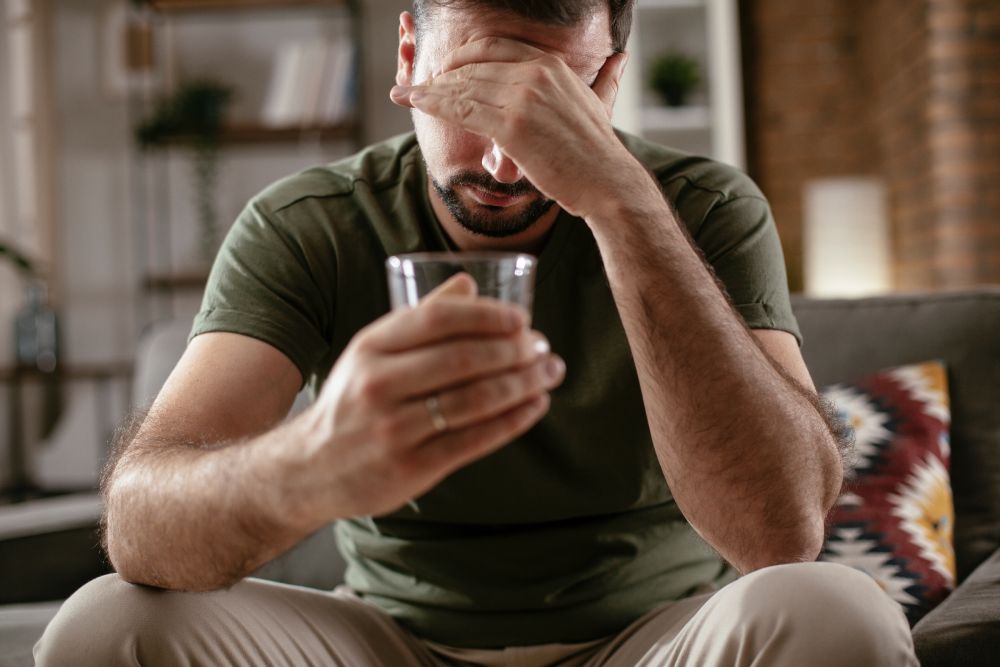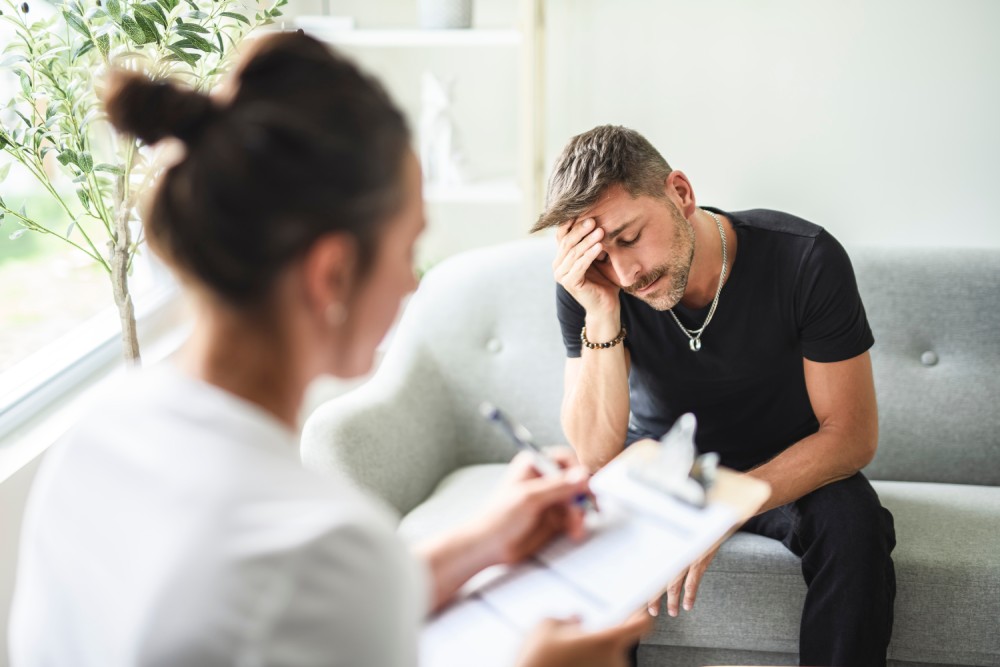Table of Contents
TL;DR:
- Alcoholic neuropathy is nerve damage caused by long-term heavy alcohol use.
- Symptoms include tingling, numbness, pain, muscle weakness, and coordination problems.
- Reversibility depends on the severity of damage, overall health, and commitment to treatment.
- Treatment involves stopping alcohol use, nutritional support, pain management, and physical therapy.
- Early diagnosis and treatment increase the chances of recovery.
Do you feel persistent tingling or numbness in your hands and feet? Are sharp, burning pains keeping you up at night? If you’ve dealt with long-term alcohol abuse, these could be signs of alcoholic neuropathy. But the big question is: can alcoholic neuropathy be reversed? It depends on a few factors.
In this article, we’ll break down what alcoholic neuropathy is, its causes, symptoms, and, most importantly, the possibility of recovery.
What is Alcoholic Neuropathy?
Alcoholic neuropathy, or alcoholic peripheral neuropathy, happens when nerves are damaged due to long-term, heavy alcohol use. But how exactly does alcohol harm your nervous system?
There are a few ways this can happen:
Direct Toxicity
Alcohol can directly damage nerve tissue, harming its structure and function.
Nutritional Deficiency
Heavy drinking often leads to poor nutrition, interfering with your body’s ability to absorb essential nutrients like thiamine (vitamin B1), which is vital for nerve health.
So, can alcohol neuropathy be cured simply by improving your diet? While better nutrition helps, it’s not the whole solution.
Metabolic Imbalance
Alcohol disrupts your body’s metabolic processes, causing harmful substances to build up and damage nerves further.
This damage primarily affects peripheral nerves—the ones connecting your brain and spinal cord to the rest of your body. That’s why symptoms usually start in the extremities.
Common Symptoms of Alcoholic Neuropathy
Alcoholic neuropathy develops gradually, with subtle symptoms that worsen over time. Early recognition is crucial for seeking timely medical help.
Sensory Issues
- Tingling or numbness, often starting in the toes and fingers.
- Burning pain, especially at night.
- Sensitivity to touch, where even light contact is painful.
- Loss of coordination or balance.
Muscle Weakness
- Weakness in the hands or feet, making it hard to grip objects or walk steadily.
- Painful muscle cramps and spasms.
Advanced Cases
- Digestive issues like nausea, constipation, or diarrhea.
- Bladder problems, including incontinence or difficulty urinating.
- Sexual dysfunction, such as erectile issues or low libido.
- Dizziness or fainting due to blood pressure changes.
If you notice symptoms of alcoholic neuropathy, see a healthcare professional right away.
Treatment and Outlook
The question on everyone’s mind when diagnosed with alcoholic neuropathy is, “Can alcoholic peripheral neuropathy be reversed?” The answer depends on factors like the severity of damage, overall health, and a commitment to lifestyle changes.
Here’s how to approach treatment and improve reversibility:
Stop Drinking Alcohol
Continuing to drink will only make nerve damage worse and block any chance of recovery. Getting professional help for alcohol addiction is key to long-term success. This can be through counseling, support groups, or rehab programs.
Nutritional Support
Thiamine deficiency plays a major role in alcoholic neuropathy, so replenishing this vital nutrient is crucial. High-dose thiamine supplements are often prescribed to help support nerve regeneration.
Alongside supplementation, a balanced diet rich in fruits, vegetables, and whole grains is essential for providing the nutrients needed for nerve repair.
Pain Management
Managing pain is key to improving your quality of life, and there are several options to consider:
- Medications: Over-the-counter pain relievers, antidepressants, anticonvulsants, or even opioids in some cases, can help ease discomfort.
- Topical treatments: Capsaicin creams or lidocaine patches, offer targeted relief for specific areas.
- Therapies: TENS (transcutaneous electrical nerve stimulation), acupuncture, or massage can also be effective for managing pain.
Physical Therapy
Regular exercise, customized to your abilities, can help improve muscle strength, balance, and coordination.
Occupational therapy can also be beneficial, teaching you how to adapt to daily activities and maintain your independence as you heal.
It’s important to note that if the nerve damage is severe or has been going on for a long time, full recovery might not be possible. Even so, treatment can still slow the disease, help manage pain and improve how well your body functions.
The earlier you start addressing alcoholic neuropathy, the better your chances of reversing the damage and getting back to a better quality of life.
Is Alcoholic Neuropathy Curable?
The answer depends on several factors, making it a complex issue without a one-size-fits-all solution.
- Severity of Nerve Damage: The extent of the damage plays a significant role. Early diagnosis and treatment generally lead to a more favorable outcome.
- Duration of Alcohol Abuse: Long-term, heavy alcohol use can cause more severe and potentially irreversible nerve damage.
- Nutritional Health: Severe deficiencies in thiamine and other nutrients can slow or limit recovery.
- Overall Health: Conditions like diabetes can complicate neuropathy and make the healing process more challenging.
- Commitment to Treatment: Abstaining from alcohol, sticking to prescribed treatments, and maintaining a healthy lifestyle are essential for recovery.
Possible Outcomes
The outcomes of alcoholic neuropathy can vary depending on the severity of the damage and how early it’s addressed. However, nerve damage is often permanent, making a full recovery unlikely.
Even if full recovery isn’t achievable, many people see significant improvement in their symptoms and overall quality of life through consistent management and care.
For others, treatment may not reverse existing symptoms but can prevent further nerve damage and help stabilize the condition, offering a better chance at maintaining functionality.
Reclaiming Your Health
Alcoholic neuropathy can feel overwhelming, but it’s important to remember that improvement is possible. While the path might not be easy, taking the first step is often the hardest part. By recognizing how alcohol affects your nervous system and seeking help, you can greatly improve your chances of reversing nerve damage and reclaiming your quality of life.
You don’t have to face this journey alone. At Infinite Recovery, we understand the challenges of alcoholic neuropathy and addiction recovery. Our team is here to offer compassionate care, support, and guidance every step of the way.
If you’re experiencing symptoms or are concerned about how alcohol may be affecting your health, contact us today. Let us help you take back control and rediscover a life free from alcohol.

















